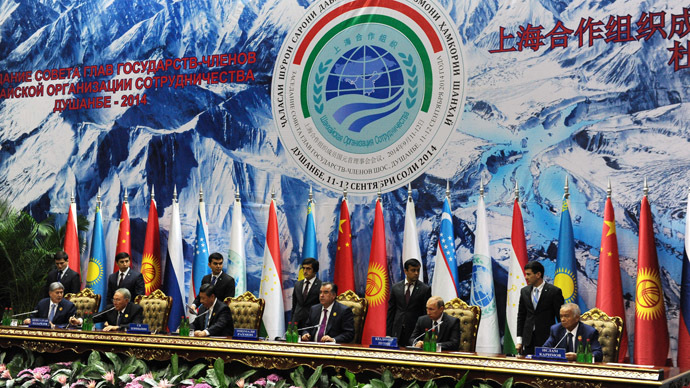The Shanghai Cooperation Organization: Allies of a New Type

The SCO has become an influential organization and an important factor in the emergence of a new polycentric world order.
The organization has worked to bring about tangible improvements in the security and multilateral political, economic and humanitarian cooperation.
As a result, the role of the SCO in international and regional affairs is on the rise, attracting the attention of many countries and international organizations. Pakistan, India, and Iran want to become full members of the SCO, while more and more countries are seeking observer or dialogue partner status.
What is the secret to the success and appeal of the SCO? The answer is simple: its steadfast commitment to the UN Charter and fundamental international law; to the principles of equality, mutual respect, consideration of each other's interests, resolving conflicts and disputes by political and diplomatic means, and the right of nations to choose their own path of development. The SCO is fully in tune with the realities and requirements of the 21st century, unlike the rigid discipline that exists within old-fashioned, cumbersome alliances of the previous era, which imposed serious constraints on the sovereignty and freedom of their member states.
Regional security remains the SCO’s top priority. Other priorities include building up joint capabilities to combat terrorism, extremism, and drug trafficking, especially amid the worsening situation in Afghanistan. The SCO has been clear that it does not seek to turn into a military-political alliance. However, its core principles include preventing unlawful acts that harm the interests of member states. At the same time, the SCO is rapidly shaping a common research, educational, cultural and humanitarian space.
During Russia’s SCO presidency, which will begin right after the Dushanbe Summit (11-12 September), we plan to focus on better equipping the SCO to handle the many challenges facing the world today and on working together to adequately respond to events in the region, and the world.
In the face of complex and interrelated challenges, Russia will use its presidency of the SCO to advocate for coordinated steps on the economy, financial sector, energy, and food security. The continuing instability of the global economy and the risks of another wave of crises demands greater economic cooperation. Plans are being outlined to make broader use of national currencies in settlements. Prospects are good for launching large multilateral projects in transport, energy, innovative research and technology, agriculture, and the peaceful use of outer space, though the optimal funding mechanism for such projects remains to be determined. The SCO Business Council, Interbank Consortium, and Energy Club are at the forefront of expanding practical cooperation among member states.
Coordinated approaches to common challenges will be reflected in the Strategy for the SCO’s Development to 2025, which will be finalized in time for the meeting of the Council of Heads of the SCO Member States in Ufa in 2015. The document is designed to deepen cooperation within the SCO while expanding cooperation with leading multilateral institutions such as the UN and its specialized agencies. It also contains provisions on establishing relations with the Eurasian Economic Union.
The Dushanbe Summit will formalize the legal, administrative and financial requirements for admitting new SCO members, making it possible to start expanding the organization during the Russian presidency. So, the SCO is actively networking, in line with the general global trend of networked diplomacy, replacing dinosaur structures of international relations of the Cold War past.
The statements, views and opinions expressed in this column are solely those of the author and do not necessarily represent those of RT.
The statements, views and opinions expressed in this column are solely those of the author and do not necessarily represent those of RT.













